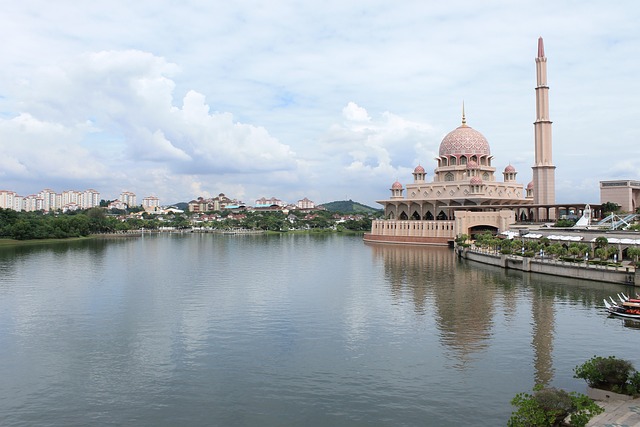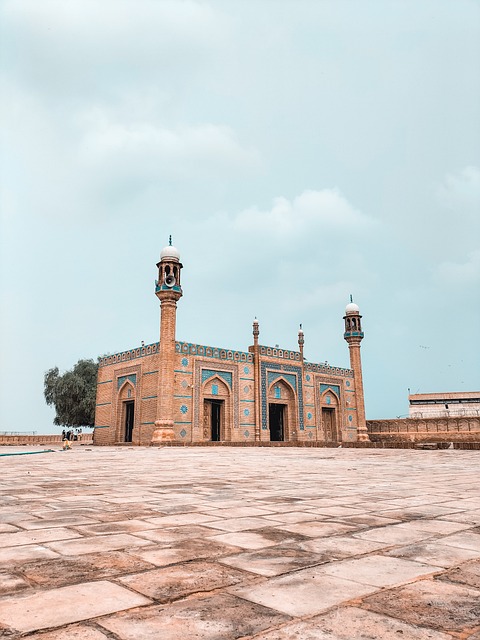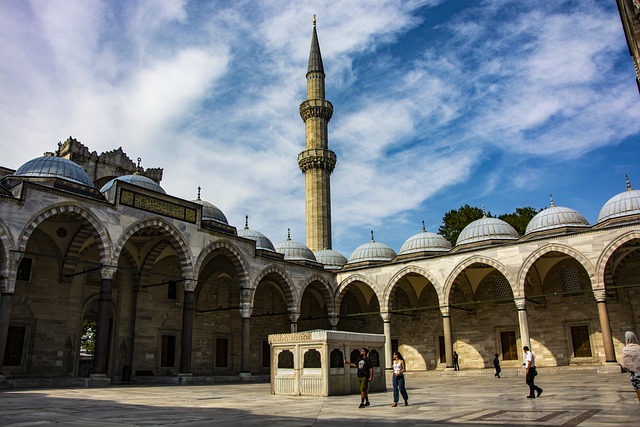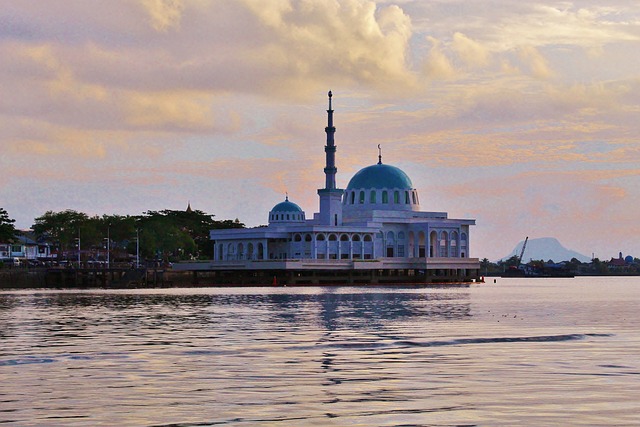2025 forecasts a significant surge in demand for Hajj packages originating from Romania, reflecting the country's status as one of Europe's most devout Muslim nations. The Romanian market for these spiritual journeys is expected to expand substantially, driven by professionalized and customized services that cater to transportation, insurance, hospitality, and healthcare needs. Companies specializing in Hajj travel must navigate a complex regulatory environment, ensuring compliance with both Romanian consumer rights and Saudi Arabian regulations. The economic impact of Hajj tourism extends to various ancillary services, including language support, halal dining options, and spiritual guidance. The Romanian government is anticipated to invest in infrastructure to facilitate the smooth passage of pilgrims. By 2025, Hajj packages from Romania will not only be a reflection of religious devotion but also a catalyst for economic diversification and international collaboration within the global Hajj industry. Strategic pricing, cost analysis, and operational efficiency will be key for providers to offer competitive and accessible Hajj experiences while maintaining the integrity of the pilgrimage. The regulatory framework governing travel between Romania and Saudi Arabia is expected to influence the availability and cost of these packages, with bilateral agreements aiming to streamline the process and potentially lead to more affordable options. Romanian companies have a strategic opportunity to expand their Hajj tourism services by 2025, leveraging specialized offerings that meet religious practices and offering technological enhancements to improve customer experiences in this growing market. Keywords: Hajj Packages 2025 from Romania.
2025 heralds a significant juncture for the Romanian economy, with the Hajj pilgrimage emerging as a pivotal sector. This article delves into the multifaceted economic impact of Hajj packages originating from Romania, offering a comprehensive analysis that spans market dynamics, cost considerations, and regulatory influences. By examining the current landscape, we aim to provide insights into how Romanian entities can capitalize on this growing market, ensuring competitive pricing and compliance with regulations to shape their role in the burgeoning global Hajj tourism industry.
- Exploring the Economic Landscape of Hajj Packages 2025: A Romanian Perspective
- Market Analysis: The Demand for Hajj Pilgrimage Services from Romania
- Cost Considerations and Pricing Strategies for Competitive Hajj Packages
- Regulatory Framework and Its Impact on Hajj Travel Economics in Romania
- Future Trends and Projections: The Evolving Role of Romanian Companies in Global Hajj Tourism
Exploring the Economic Landscape of Hajj Packages 2025: A Romanian Perspective

In 2025, the economic landscape surrounding Hajj packages originating from Romania is poised to reflect a blend of traditional pilgrimage routes and contemporary logistical advancements. As one of Europe’s most devout countries with regard to Muslim populations, Romania presents a unique market for Hajj travel agencies. The demand for Hajj packages is expected to surge, with these services becoming increasingly professionalized and tailored to meet the diverse needs of Romanian pilgrims. The economic impact will be multifaceted, touching upon sectors such as transportation, insurance, hospitality, and healthcare, all of which are crucial in facilitating a safe and comfortable journey for the faithful. Companies specializing in Hajj packages from Romania will need to navigate this complex ecosystem with an acute understanding of both the spiritual obligations of the pilgrimage and the logistical demands of coordinating travel on such a large scale. This will include ensuring compliance with both Saudi Arabian regulations and Romanian consumer protections, thereby balancing cultural sensitivity with legal requirements.
Furthermore, the economic opportunities associated with Hajj packages in 2025 are not limited to the immediate service providers. They extend to ancillary services such as language assistance, halal catering, and religious guidance. The Romanian government may also play a pivotal role by investing in infrastructure to support this flow of pilgrims, including visa facilitation and healthcare services. With a growing Muslim population and a heightened focus on interfaith dialogue and tourism, Romania’s economic engagement with the global Hajj industry will likely expand, offering significant growth potential for businesses involved in this sacred journey. The anticipation for Hajj packages 2025 from Romania signifies not just a religious commitment but also an opportunity for economic diversification and international cooperation.
Market Analysis: The Demand for Hajj Pilgrimage Services from Romania

2025 is poised to be a pivotal year for Hajj pilgrimage services originating from Romania, with market analysis indicating a burgeoning demand. As one of Europe’s most devout nations with a significant Muslim population, Romanian Muslims are increasingly seeking authentic and comfortable Hajj experiences. The anticipated rise in the number of pilgrims from Romania to perform Hajj presents a lucrative opportunity for travel agencies specializing in Hajj packages. These agencies are expected to innovate and tailor their services to cater to this growing market, offering competitive pricing, comprehensive services, and enhanced security measures to ensure a seamless and spiritual journey. With the pilgrimage being one of the five pillars of Islam, the importance of this religious duty cannot be overstated, and it is anticipated that Romania’s Hajj travel sector will expand substantially to meet the increasing demand. This expansion is expected to be bolstered by the country’s improving economic conditions, the rising disposable income among its population, and the growing number of direct flights from Romanian cities to Saudi Arabia, facilitating easier access for pilgrims. As a result, the forecast for Hajj packages in 2025 from Romania is promising, with a significant market growth expected to continue into the following years, reflecting the deep religious convictions and the evolving travel industry landscape.
Cost Considerations and Pricing Strategies for Competitive Hajj Packages

2025 sees a significant shift in the economic landscape for pilgrims from Romania seeking to undertake Hajj, with cost considerations and pricing strategies playing pivotal roles. As the demand for Hajj packages continues to rise among Romanian Muslims, service providers are increasingly focusing on competitive offerings that cater to diverse budgets and expectations. These packages must be meticulously structured to reflect the best value for money, incorporating essential components such as flights, accommodations, and logistical support, while ensuring compliance with the sacred rituals of Hajj. Providers aim to balance affordability with quality, understanding that cost-effective solutions do not equate to compromising on the spiritual and ceremonial aspects of this once-in-a-lifetime journey. Strategic pricing is thus employed, taking into account seasonal fluctuations, currency exchange rates, and operational efficiencies, to offer Hajj packages from Romania at prices that remain attractive to potential pilgrims. This approach not only facilitates a more accessible Hajj experience for Romanian Muslims but also positions service providers competitively in the global market of Hajj tourism.
Regulatory Framework and Its Impact on Hajj Travel Economics in Romania

The regulatory framework governing Hajj travel from Romania plays a pivotal role in shaping the economic dynamics surrounding Hajj packages for 2025. As Romanian pilgrims continue to seek fulfillment of one of Islam’s five pillars of faith, the government’s policies and procedures influence both the supply and cost of Hajj packages. These regulations encompass travel authorizations, safety standards, health protocols, and transportation logistics, all of which contribute to the overall economic landscape of Hajj travel. The agencies responsible for regulating these aspects ensure compliance with international standards while protecting the rights and well-being of the pilgrims. Consequently, the stability and clarity of these regulations can significantly affect the prices and availability of Hajj packages offered by travel agencies in Romania for the 2025 pilgrimage.
Furthermore, the economic impact is further influenced by the bilateral agreements between Romania and Saudi Arabia, where both countries agree on aspects like visa facilitation, infrastructure support at holy sites, and the management of pilgrim flows. These collaborative efforts not only streamline the logistics for Hajj travel but also foster an environment conducive to competitive pricing for Hajj packages, thereby making this spiritual journey more accessible for Romanian Muslims. The economic implications are profound, as a smooth regulatory process can lead to increased demand for these packages, benefiting both the pilgrims and the travel agencies involved in organizing the Hajj trips from Romania in 2025.
Future Trends and Projections: The Evolving Role of Romanian Companies in Global Hajj Tourism

2025 presents an opportune juncture for Romanian companies to significantly elevate their presence and offerings within the global Hajj tourism sector. With the pilgrimage’s consistent demand, there is a clear market for specialized Hajj packages originating from Romania. Current trends indicate a shift towards comprehensive travel solutions that cater to the diverse needs of Muslim travelers, particularly those observing Halal dietary requirements and seeking culturally sensitive services. Romanian companies are poised to capitalize on this by developing tailored Hajj packages that not only comply with religious guidelines but also provide exceptional value and convenience. These packages will likely incorporate robust logistics, expert guides well-versed in Arabic, and accommodations close to the holy sites, ensuring a seamless and spiritually enriching experience for pilgrims. As global travel norms evolve post-pandemic, Romanian entities are expected to innovate and adapt, leveraging technology and data analytics to streamline operations and enhance customer satisfaction. The future holds promise for these companies as they position themselves as key players in the Hajj tourism industry by 2025, with the potential to offer competitive and culturally sensitive travel packages that meet the demands of a growing Muslim population worldwide.
2025 presents a pivotal juncture for the Romanian market within the global Hajj tourism sphere, as outlined in the analysis of Hajj packages’ economic landscape. The comprehensive examination of demand dynamics, cost considerations, pricing strategies, and the regulatory environment has underscored significant opportunities for Romanian enterprises to compete on both national and international stages. As Romania’s companies adapt to evolving trends and regulations, their role in facilitating Hajj pilgrimage services is poised to expand considerably. With a strategic approach, these entities can capitalize on the growing demand, ensuring competitive offerings in the Hajj packages 2025 sector. This will not only bolster the country’s economic standing but also enrich the pilgrimage experience for those fulfilling one of Islam’s Five Pillars.
